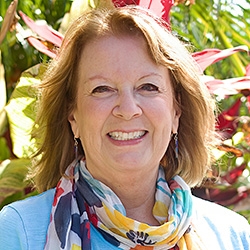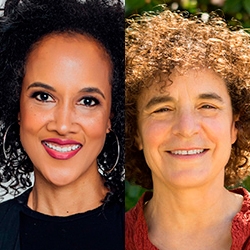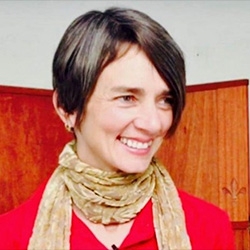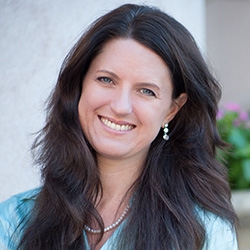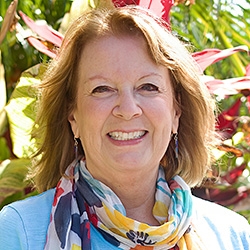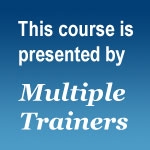
Search Results: pain
-
Trainer Tip: NVC-based social change naturally emerges from “a certain kind of spirituality”, a quality of spiritual clarity. Intuitions and impulses arising from spiritual clarity are more likely to support sustainable systems. Read on for how to bring more of this in, and ways to transform your complaint into commitment.
-
- Learn how to transform NVC into a tool for systemic awareness and healing
- Examine the influence of difference, and uncover pathways that strengthen its capacity
- Learn to receive and offer feedback on impact in situations fraught with power differences
- Explore specific ways in which NVC systemically supports the full flowering of humanity
- Delve into the dynamics of cultural differences, and discover how NVC can systemically contribute to a liberation perspective
-
Trainer Tip: We all want to be valued in our totality, to be loved even when we make mistakes. Wouldn’t we also like to offer this to ourselves? Compassion is about seeing the humanness in everyone, including ourselves. One way to express compassion is to remember your entire relationship and history of love with someone as a whole, rather than focusing on one disappointing incident.
-
- Inscrease compassion for yourself through understanding why your capacity may lag so far behind your commitment and what you can do to bridge the gap
- Higher Compassion for your children as you understand better what life is like from within their own experience rather than from the outside looking in
- Surge in energy that you can put into new conversations with them designed to make agreements that are based on the truth of where you all are rather than on any "should"
-
- Discover how Spiral Dynamics can offer more understanding of human nature
- Learn from a Ukrainian NVC trainer and Spiral Dynamics experts
- Better grasp the evolution of human needs, values, and life conditions
- Explore how to apply NVC in situations that involve extreme violence
-
Total inclusion is impossible: inclusion of all can often lead to exclusion of those who can't bear the behaviors of some. Many groups flounder and disintegrate because of too much inclusion. Limited resources and capacities may make it necessary to exclude. Keeping more coherent shared values and strategies may be another reason to place membership conditions so that what appears to be exclusion may give movements a chance to expand.
-
- Find your voice in response to words you hear as racist
- Build bridges across significant differences of opinion
- Become a powerful ally for the racial justice movement
-
If you answer yes to at least one of the questions below, then this course may be key to building the relationship you want with your children:
- Do you know in your bones that you want to build a relationship in which both your needs and those of your children are fully included?
- Are you tired of seeing yourself time and again using methods to get your children to "cooperate" that you don't actually subscribe to?
- Do you struggle to imagine how to find enough hours in the day to collaborate for real with your children?
- Do you brace for any conversation with extended family and community who criticize you for being too soft with your children?
- Do you often feel all alone and wonder if you are actually on the right path?
-
Is it tough to see a loved one go through hardship? May you have tension building up inside and draw a rigid boundary, or feel the urgency to swoop in and try to “rescue” them with advice, consoling, cheering up, analyzing, or explaining? Instead, relax your body. Invite your emotions to flow with acceptance. Notice inner peace and expansion. See this person as someone on a journey to awakening with all its painful and joyful twists and turns.
-
The purpose of boundaries is to prevent harm to yourself and others. You decide what you are available for and what you are not. Boundaries are a clear expression of limits that keep your heart open no matter what.
-
Read on for a demonstration of self empathy -- all generated within the context of both the COVID-19 pandemic, and the changes to Bridget's life that have arisen as a result.
-
Anytime you create something new in your life, you can fulfill your need for creativity. Expand your concept of what it means to be creative. Read on for examples.
-
-
Ask the Trainer: "I am wondering what to do with a judgment that is expressed by someone about me. In these situations I can't find the unmet need they are expressing (other than perhaps significance)."
-
In this audio recording, Sylvia Haskvitz, veteran CNVC Certified Trainer, offers an in-depth discussion of the Nonviolent Communication process of empathy.
-
This chart is intended as an aid to translating words that are often confused with feelings. These words imply that someone is doing something to you and generally connote wrongness or blame. To use this list, when somebody says “I’m feeling rejected,” you might translate this as: “Are you feeling scared because you have a need for inclusion?”
-
Ask the Trainer: "Could you share a list of types of requests, with examples of each and a possible strategy for formulating requests in conversation?"
-
Ask the Trainer: "In trainings I say our jackals are thoughts and now I've come to wonder if all thoughts are jackals...?"
-
Join CNVC Certified Trainers, Raj Gill and Mary Mackenzie as they explore the Nonviolent Communication process of Empathy. This audio will support people with a basic understanding of Nonviolent Communication who want to deepen their ability for empathic presence.
-
In this dynamic 4 session telecourse recording, Kelly Bryson provides practical skills to balance passion for self with compassion for others. You will learn to apply Nonviolent Communication to stop yourself from being intimidated, giving in or giving up, abandoning your own needs or resenting others.



